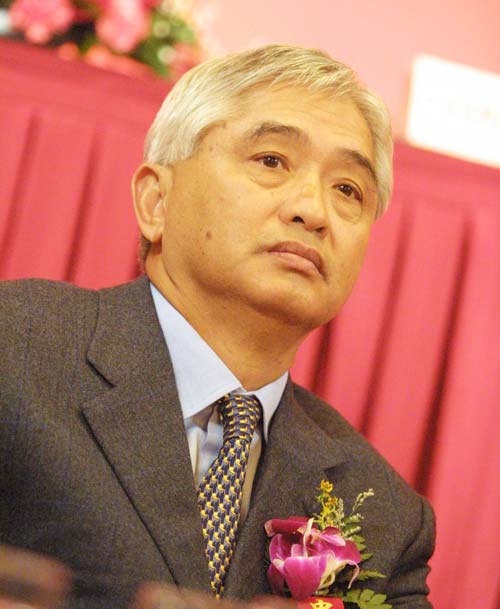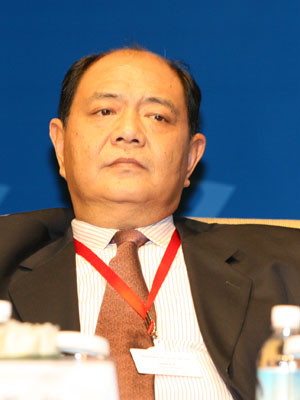Banking
- Details
- By Chinadaily.com.cn
- Hits: 1508
China's insurance regulator has given Bank of Communications and Bank of Bejing approval to buy into domestic insurers, the China Securities Journal reported on Friday.
The approvals mark an acceleration of the development of financial conglomerates in China, the paper quoted a source at a State-run commercial bank as saying. The China Insurance Regulatory Commission has given Bank of Communications, China's fifth-largest lender, approval to buy a stake in Shanghai-based China Life-CMG Insurance Co, the paper said, citing sources
The insurer is a joint venture between Commonwealth Bank of Australia and China Life Insurance.
The regulator has also approved the purchase by Bank of Beijing, which is 16 percent owned by ING Groep NV, of a stake in Pacific-Antai Life Insurance Co, the paper said.
The report did not specify the size of the stakes or the financial terms of the purchases.
China is relaxing its rules and allowing banks to enter the brokerage, fund management and insurance businesses to reduce their reliance on lending in a weakened economy, as well as to develop and deepen the country's financial services sector.
- Details
- By Chinadaily.com.cn
- Hits: 1544
China Merchants Bank (CMB), the country's fifth-largest bank by market value, said its net profit for 2008 grew 38.27 percent to 21.08 billion yuan ($3.78 billion).
But the bank's profit growth slowed in the fourth quarter amid a weakening global economy. CMB's fourth quarter net profit fell to 2.09 billion yuan, down 63.65 percent from its 5.75 billion yuan net profit in the third quarter.
The bank's earnings per share rose to 1.43 yuan, up 37.5 percent from the previous year's 1.04 yuan, according to a preliminary earnings report released Thursday. CMB also postponed the release of its 2008 earnings report to April 24, from a scheduled release date of April 16.
The bank said the figures were unaudited.
- Details
- By David Cao
- Hits: 3171

The son of former Vice president Yung Yiren-- Larry Yung Chikin
The head of Hong Kong conglomerate CITIC Pacific stepped down Wednesday amid a scandal over bad currency bets that may have cost the company nearly US$2 billion.
Chairman Larry Yung Chikin resigned after police raided the company's office on Friday as part of a fraud investigation related to its foreign currency contracts, the company said. Managing Director Henry Fan Hungling also quit.
"Mr Yung believed that his resignation would be in the best interests of the company," CITIC Pacific, a vast conglomerate whose dealings run from airlines to mining and Wal-Mart stores, said in a statement to the Hong Kong stock exchange.
The company has been criticized since last October by lawmakers in the special administrative region for a six-week delay in revealing its astronomical losses from unauthorized speculation on the Australian dollar. The scandal is believed to have cost three-quarters of the company's market capitalization.
Chang Zhenming, 52, a non-executive director, now takes the helm of the company, the statement said.
Patrick Chow, a Hong Kong-based conglomerate analyst at China Everbright Research Ltd, said it is more important for the company to improve management transparency than replace top executives.
"The new management may not help the company regain investor confidence immediately," Chow said.
The research firm maintains a "sell" rating for the company.
Reporters and camera crews yesterday swarmed the company's office building in Central, Hong Kong's business district, amid widespread media speculation about an executive reshuffle.
The CITIC statement also praised the two former executives for their "significant contributions" during their more than 20 years in the company.
"They made solid progress in realizing the company's strategic goals and their business experience and insight have provided much guidance and wise counsel to the board through the years," it said.
CITIC Pacific shares traded at HK$9.47 on April 3 before they were suspended. They hit a record low of HK$3.66 after the scandal broke last October, compared to a high of nearly HK$50 at the end of 2007.
CITIC Pacific stunned the market last year when it revealed massive losses from bad bets on leveraged foreign currency contracts, prompting the company to seek a $1.5 billion bailout from its Beijing-based affiliate, CITIC Group.
The Hong Kong company last month said those bad bets had cost it about HK$14.6 billion ($1.9 billion).
The losses triggered outrage among investors as well as a separate investigation from regulators.
In 2007, Yung was listed among the richest people in China with a fortune estimated at some $3.7 billion by Forbes magazine.
If all accuses are the facts, he will face 14-year jail time for the lose of CITIC. BTW, his story will lose halo and attractions.
Read latest news on China CITIC Bank reports 60% net profit increase in 2008
- Details
- By David Cao
- Hits: 1557

Impact from the global financial crisis didn't stop China's top three State-controlled banks from posting a profit for 2008.
But they face much tougher challenges in 2009.
Industrial and Commercial Bank of China (ICBC) and China Construction Bank (CCB) last week reported 36 percent and 34 percent net profit growth for 2008. Despite huge losses from its US subprime mortgage-related investments, Bank of China (BOC) also managed 14 percent net profit growth last year.
But earnings growth in the top three State-controlled banks slowed significantly in the fourth quarter of 2008. ICBC, the biggest, only maintained a 0.5 percent net profit growth, while CCB and BOC saw 30 percent and 59 percent drop in net profits.
Net interest margin became the main factor hurting the banks' profit growth.
In addition to higher provisions the top three banks set aside for their US subprime mortgage-related holdings, analysts pointed out that narrowing net interest margins not only led to the banks' fourth quarter profit growth slowdown last year, but also will cut their profitability in 2009.
Although CCB's net interest margin for the full year increased 6 basis points, its fourth quarter net interest margin declined 13 basis points from the previous quarter, Chen Shuixiang, an analyst from China Jianyin Investment Securities, wrote in a report. A basis point is 0.01 percentage point.
ICBC's net interest margin in the fourth quarter stopped growing in spite of a 15 basis points growth for the full year, while BOC's net interest margin fell 13 basis points in 2008.
China's central bank has cut lending rates by 216 basis points since last September to stimulate the economy while lowering the deposit rate by 189 basis points, hurting loan profitability at banks.
Chen predicted that net interest margin in the top three banks will contract by a further 40 basis points this year.
"It would be lucky if the top three banks maintain a positive profit growth in 2009. Most mainland banks are facing similar scenarios as the impact of the global financial crisis is far from over," Chen said.
Donghai Securities analyst Li Wen even forecast the top three banks' net profit in 2009 to fall more than 10 percent. "The top three banks will only be able to see positive net profit growth after 2010," Li wrote in a report.
Despite being not as pessimistic as other analysts, Guoxin Securities analyst Tan Xuan also projected net profit growth in the top three banks to be lower than 10 percent this year.
Some argue that rapid loan growth since the beginning of 2009 might help boost the top three banks' profits.
Domestic banks extended a total of 2.69 trillion yuan in new loans in the first two months of 2009, up 159 percent from the previous year, according to the central bank's figures.
But analysts also question the asset quality of the top three banks amid a slowing down economy in China.
"Rapid lending growth is not enough to compensate for the contraction in net interest margins and the asset quality in Chinese banks may also deteriorate due to a weakened economy in China," said Zhang Jing, an analyst from Minzu Securities.
Although its non-performing loans (NPL) ratio fell 0.39 percentage points compared to a year earlier, CCB's NPL ratio of 2.21 percent at the end of 2008 was still 0.04 percentage points higher than the figure at the end of third quarter last year.
According to CCB President Zhang Jianguo, about 35 percent of the bank's new loans went to the manufacturing industry and small and medium-sized enterprises, which were hard hit in the global economic downturn.
Weak industrial output data suggest the surge in credit hasn't translated into a strong pickup in real economic activity.
A 3.8 percent rise in industrial production in the first two months of the year fell short of some economists' expectations. Discouraging industrial output, together with a plunge in February exports and a 1.6 percent drop in China's consumer price index in February, indicate that the government's stimulus measures - while boosting loans and capital expenditure investment - have yet to make a strong impact on the fortunes of private companies and households.
- Details
- By David Cao
- Hits: 2251

The general manager of China's state-owned trade insurance company has been arrested on charges he took bribes and caused heavy losses by abusing his position, a state news agency reported Friday.
Tang Ruoxin was fired from the China Export and Credit Insurance Corp. following an investigation into improper lending, the Xinhua News Agency said, citing an announcement by the country's insurance regulator.
Investigators found "hefty state-owned assets were lost when Tang abused his power to benefit others," and Tang and his family took "a large amount of bribes," Xinhua said. It said Tang was arrested Aug. 21 and an investigation was under way.
In one incident, Tang was accused of offering a credit guarantee to the Shanghai Hongsheng (Norcent) Technology Co., which lied to the bank and defaulted on a $245 million loan, Xinhua said. It gave no details of the losses to the insurer.
Xinhua said Tang was stripped of his Communist Party membership, usually a step toward prosecution, but there was no mention of what penalty he might face if convicted.
It was the second corruption case disclosed this week against a high-level Chinese financial executive following an announcement Wednesday that the vice president of the China Development Bank, Wang Yi, was under investigation on charges of taking bribes.
Tang had been general manager of the Export and Credit Insurance Corp. since it was created in 2001, Xinhua said.
More Articles …
Page 27 of 28